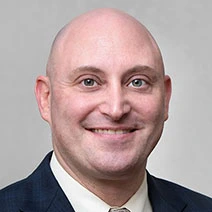Navigating the Challenge: Collecting Judgments Against Uninsured Defendants
The recent case involving the Sandy Hook families and Alex Jones illustrates a stark reality in personal injury law: the daunting challenge of collecting large legal judgments, especially when defendants lack adequate insurance coverage. The families, who won nearly $1.5 billion in judgments, offered to settle for much less, reflecting the complexities involved in enforcing such large sums.
In personal injury cases, the stark difference in the collection process between insured and uninsured defendants is profound. While settlements with insured defendants or self-insured entities can result in swift payments to the plaintiff, the same is not true with uninsured defendants. Most uninsured individuals are judgment proof, meaning it is near impossible to collect the full judgment amount, if at all. This scenario can lead to significant time and expense spent in futile collection efforts.
For victims and their attorneys, the struggle begins with a realistic assessment of the collectability of the judgment. This involves an analysis of the defendant’s assets and the legal feasibility of enforcing the judgment in the relevant jurisdiction. In many cases, despite a successful legal victory, the actual collection of awarded damages remains a distant prospect due to the defendant’s financial situation.
When a defendant lacks insurance, attorneys may explore various options to recover damages. If the defendant owns real estate, it may be possible to execute on this judgment by forcing a sheriff sale of the property or by clouding the title to the property, affecting its sale or refinancing. However, these methods have their own legal and ethical implications and may not always be viable, especially if the defendant is not the sole property owner.
Other avenues include attempting to force the sale of the defendant’s personal assets like cars or jewelry, or attaching the defendant’s wages if they have a salaried job. In some states, there are specific tools for collecting damages from uninsured defendants in car accident cases, such as the suspension of the defendant’s driver’s license until the judgment is paid.
The process of collecting from an uninsured defendant often requires significant investigative work and legal maneuvering. Attorneys may need to conduct detailed asset searches, including interrogatories to banks and other institutions, to uncover any hidden or undisclosed assets of the defendant. This process can be both costly and time-consuming, with no guarantee of success.
In conclusion, the legal battle does not end with the award of a judgment. For victims of personal injury, especially when dealing with uninsured defendants, the path to financial recovery can be fraught with challenges and obstacles. This reality underscores the importance of a comprehensive legal strategy that considers not only the pursuit of justice but also the practicalities of judgment collection.


